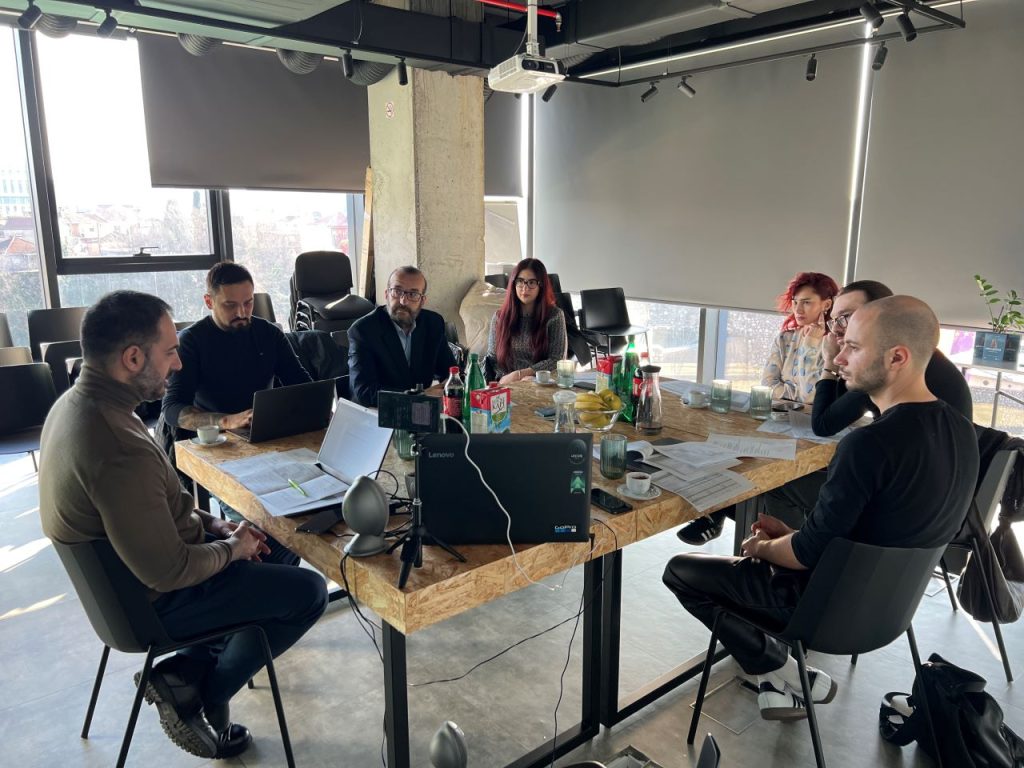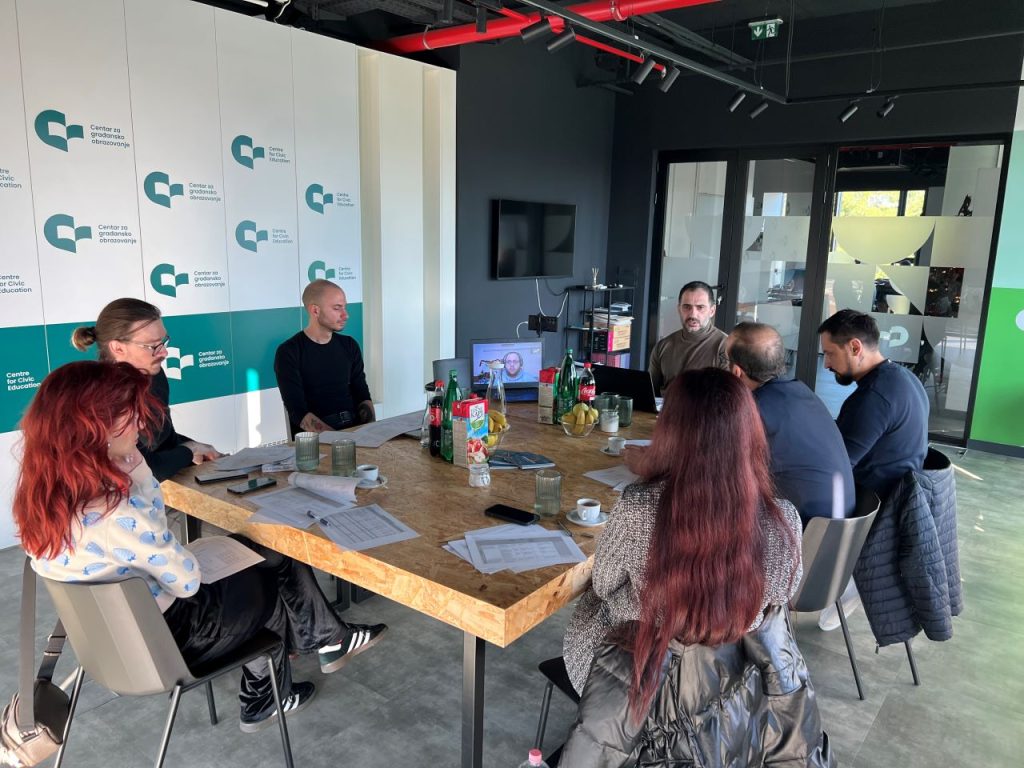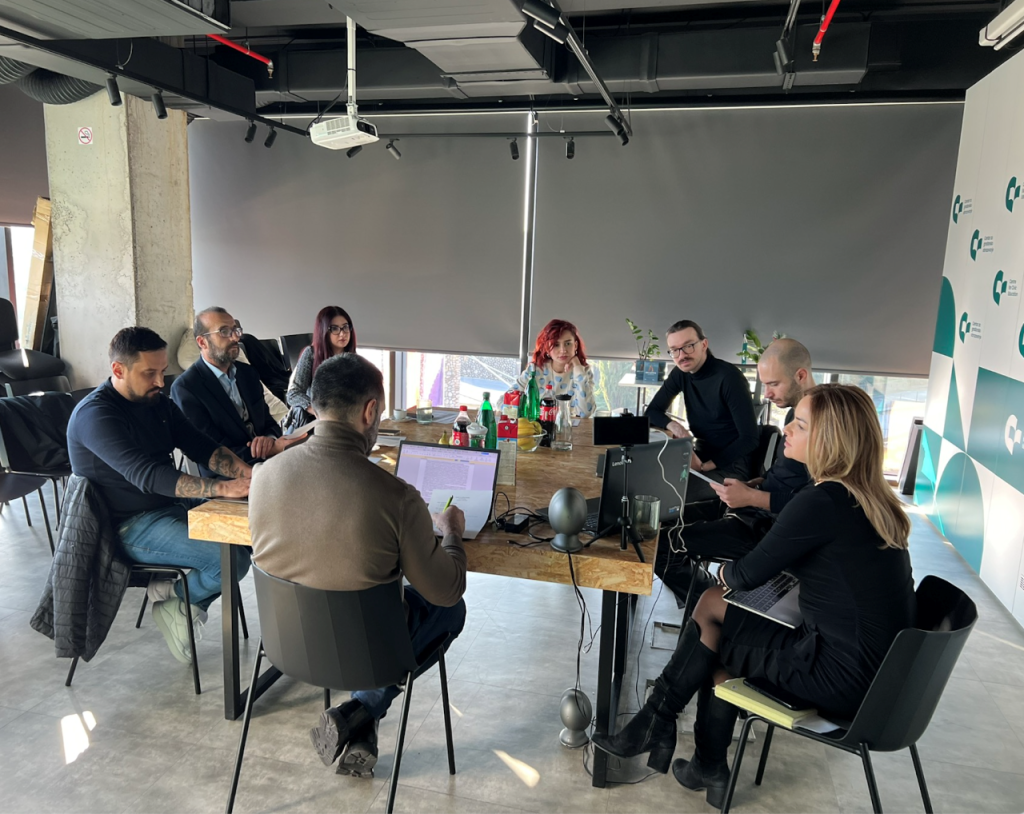Through concrete actions, legislative reforms, and awareness-raising efforts, progress can be made in the collective fight to advance the rights, inclusion, and equality of LGBTIQ+ individuals, was one of the key messages from the initial meeting of the project “Together for LGBTIQ+ Equality,” implemented by the Centre for Civic Education (CCE) in partnership with ERA – LGBTI Equal Rights Association for Western Balkans and Turkey, Montenegrin LGBTIQ+ Association Queer Montenegro, Queer Center from Skopje, Tuzla Open Center (TOC), Open Mind Spectrum Albania (OMSA), and the Center for Social Group Development (CSGD) from Kosovo, with the support of the European Commission.
The objective of this multi-year project is to improve the quality of life and social inclusion of LGBTIQ+ individuals in the Western Balkans by strengthening legal and institutional mechanisms, fostering an open and tolerant environment, and building the capacities of civil society organizations (CSOs). This includes financial and mentoring support to local CSOs, provision of free legal aid, fostering collaboration among judiciary actors, decision-makers, and NGOs, as well as conducting analyses and public campaigns to raise awareness about the human rights situation of LGBTIQ+ individuals in the region.
Petar Đukanović, Programme Director at the CCE, highlighted the importance of this significant regional initiative. “This is not just a platform for connecting organizations but also a means to achieve real, lasting changes in the lives of LGBTIQ+ individuals. Our intention is to induce systemic reforms, education, and awareness to shape more inclusive and just societies in the region, thereby ensuring long-term protection of LGBTIQ+ rights and improving the social climate in the Western Balkans,” he explained.
“The project „Together for LGBTIQ+ Equality“ comes at a critical moment for the region and Serbia, where ERA is headquartered, as it addresses the need for concrete steps to protect LGBTIQ rights. This is crucial in the face of political trends that directly undermine these rights and significant cuts to organizational funding that have weakened the LGBTIQ movement. I believe this project will bring new energy to the fight for equality and legislative changes across the region covered by ERA,” said Danijel Kalezić from umbrella organisation ERA.
Admir Adilović from TOC shared a similar perspective: “Regional projects like this are of great importance for all LGBTI people, as they simultaneously amplify our community’s voice locally and regionally. Joint action has a much stronger impact on the broader community, supports inclusion, and promotes the idea of equality. The planned activities will directly improve the living conditions of LGBTI+ individuals in Bosnia and Herzegovina and the region,” they stated.
Balša Dragojević from Queer Montenegro pointed to the context in which the fight for LGBTIQ rights is taking place. “Montenegro faces growing pressures from right-wing groups that threaten fundamental human rights. Projects like this can help bring our society back on the path of inclusion and equality. I expect we will strengthen community capacities with concrete results, such as better law enforcement, support for individual LGBTIQ people, and raising public awareness,” he noted.
David Tasevski from the Queer Center in Skopje also placed the project within the framework of the current crisis. “By focusing on shared challenges and needs of LGBTIQ+ individuals in the region, this project will enable collaboration and the exchange of experiences between partner organizations from different countries. This programme is also a key tool for ensuring continuity and stability in our work, which will lead to greater impact in protecting the rights and interests of LGBTIQ+ individuals,” said Tasevski.
“At a time when anti-gender movements are gaining traction in Kosovo, this initiative strengthens our collective fight for LGBTIQ+ rights. Empowering local organizations capacities through subgranting scheme for their projects unites our efforts to counter regressive movements and shape a more inclusive future for everyone,” stated Arber Nuhiu from CSGD in Kosovo, expressing confidence that this project will support and connect a consortium of LGBTIQ+ organizations across five Western Balkan countries.
“This project represents a significant step for Albanian NGOs in promoting inclusivity and equal rights for all. It provides a platform to address the challenges faced by our LGBTIQ+ community, strengthen advocacy efforts, and encourage collaboration among organizations working towards social justice. I believe this initiative is key to building a more inclusive society in Albania,” said Dea Shehu from OMSA in Albania.
The project “Together for LGBTIQ+ Equality” will be implemented over 40 months, geographically covering Montenegro, Serbia, Albania, Bosnia and Herzegovina, Kosovo, and North Macedonia.
Ivana Matanović, Programme Associate



